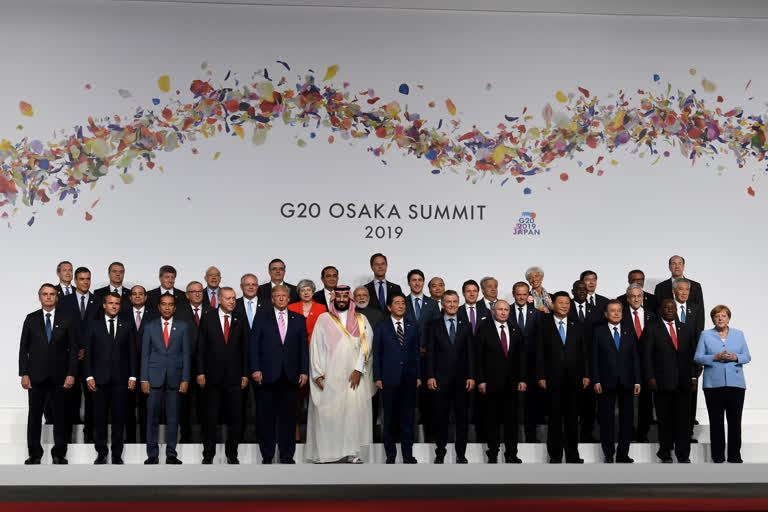Berlin: People have taken to the streets of Berlin, London, Paris and other cities around the world to demonstrate in support of 'Black Lives Matter' protesters in the United States and to vent anger over President Donald Trump’s response to the police killing of George Floyd in Minnesota.
But at the top, the leaders of traditional allies of the United States have taken pains to avoid criticizing Trump directly, walking a fine line to reconcile international diplomacy with domestic outrage.
Canadian Prime Minister Justin Trudeau let the silence speak for itself when asked to comment on the decision to forcibly clear peaceful protesters outside the White House to make way for a Trump photo-op at a nearby church, standing pensively at his lectern mulling his answer for more than 20 seconds before answering that Canada also suffered from 'systemic discrimination' — never mentioning the American President.
“We need to be allies in the fight against discrimination, we need to listen, we need to learn, and we need to work hard to fix, to figure out how we can be part of the solution on fixing things,” he said.
Read |North Korea tells South to stop 'nonsensical' denuke talk
German Chancellor Angela Merkel sidestepped questions from ZDF public television about Trump last week, saying the killing of Floyd was terrible. Racism is something terrible, and society in the United States is very polarized.
When pressed, she conceded that Trump’s political style is a very controversial one but would go no further when asked if she had confidence in him.
A combination of factors are at work, including diplomatic courtesy but also pragmatism based on the possibility that Trump will be reelected to another four years in November, said Sudha David-Wilp, deputy director of the Berlin office of the German Marshall Fund think tank.
Read |Melania Trump moved to WH after getting new prenup: Book
“It wouldn't be proper for his peers to criticize, especially when it's very obvious that they are concerned that the United States is going through an incredibly difficult time — you have the triple whammy of an economic depression, health crisis and now, of course, social unrest due to questions of racism,” she said.
But she said it's difficult for leaders like Trudeau and Merkel, who are seen as defenders of liberal democracy and President Trump has trampled on many of the values that undergird liberal democracy, such as the protection of minorities, such as the freedom of assembly, such as the freedom of the press.
Merkel’s verbal gymnastics could have been anticipated — in more than 14 years as chancellor, she has steered clear of ever critiquing allied world leaders — but even leaders who typically support Trump, like Hungary’s Viktor Orban or Israel’s Benjamin Netanyahu have stayed silent on this issue.
British Prime Minister Boris Johnson, who has sought to cultivate close ties with Trump, called Floyd's death appalling and said people have a right to protest to make their feelings known about injustices such as what happened to George Floyd but urged peaceful demonstrations.
Britain has seen several protests turn violent and last weekend demonstrators in Bristol toppled the statue of a 17th-century slave trader. They also spray-painted an iconic statue of former Prime Minister Winston Churchill in London, calling him a racist.
